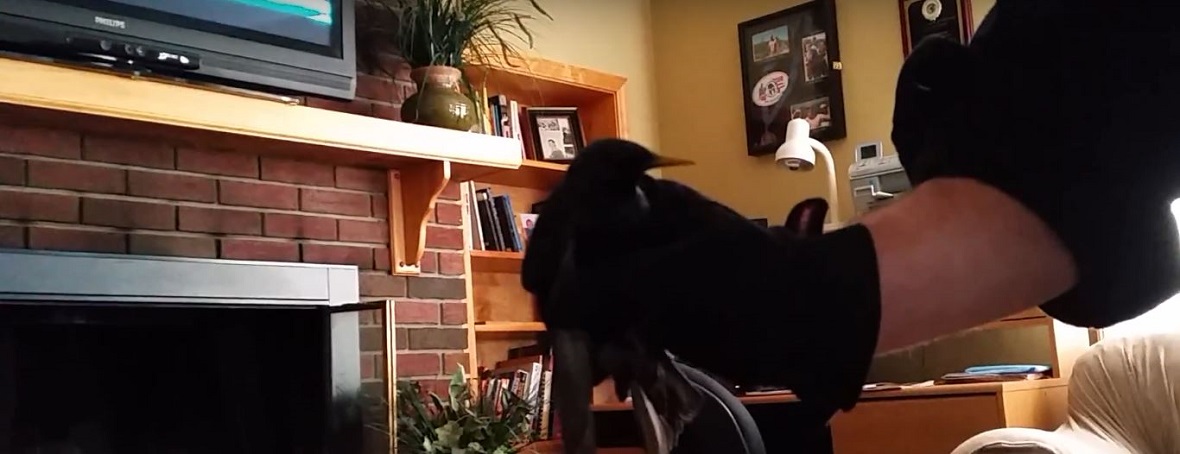- info@animalatticpest.com
- Call - we service 300 locations
How To Get Birds Out Of A Chimney
Even if you don’t plan on using your chimney in the near future, you will want to take steps to get any wildlife that are inside it out as soon as possible. The longer animals, including birds, stay in the chimney, the more damage they can do and the greater the risk of disease becomes.

Why Birds Are In Your Chimney
Before you start getting the birds out of your chimney, you may be interested to know why they are there in the first place. Chimneys are an ideal site for a nest from the bird’s perspective as they are safe and warm. Particularly in chillier months, there can be a dramatic difference between the temperature in the chimney and outside, which might be a question of life vs death for the bird in question. Chimneys are warmer in early spring as well since the warm air in your home rises into the flue. Additionally, chimneys offer protection from predators and weather.
In most cases, a bird in the chimney will build its nest immediately on top of the damper or smoke shelf, which is in turn directly above the fireplace. It is actually possible for there to be multiple nests within a single chimney, making it even harder to get the birds out as there are larger numbers to remove.
The Risks Of Birds In Chimneys
It is unlikely that a bird that has taken up residence in your chimney will attack you or your family members, but there are other risks to keep in mind. If you are unaware of the bird or haven’t cleaned your chimney after removing it, there is a very serious fire hazard. If you were to light the fireplace, the bird would be at risk as would you. The first and smoke would pose the immediate threat to the bird. For you, the issue would be that the nesting material causes blockage so the smoke can’t escape from your chimney, instead entering your home and potentially worsening the fire. There is also a risk of disease transmitted by birds, particularly their waste products. Histoplasmosis, for example, is one of the most common diseases found in bird feces and it can eventually lead to blindness if left untreated.
Actually Getting Them Out
If the birds in your chimney are nesting, you will unfortunately have to wait. It is almost always illegal to remove nesting birds, even if they are in your chimney. Because of this, you will need to wait until the baby birds have grown up and the family has left your chimney. At this point, you can clean and take care of other issues. In the case of a single bird or those that are not nesting, you can go ahead and take action right away.
Begin by checking where the bird is. If it is in the chimney itself and not the fireplace, open up your fireplace damper. You can then put a large box into the fireplace’s opening with the opening up. Prop it so there is around an inch from the top of your fireplace to the box opening. Once positioned, slide the box out slightly so you can turn on a flashlight and place it inside before putting the box back in place. Make sure the room is quiet and wait for the bird to enter the box. Once it has, slide a cardboard sheet over the opening carefully. Now you can gently take the box with the bird inside out of your home, remove the cardboard top, and release the bird.
When the bird is in the fireplace to begin with, close the doors that go to the room. Cover open doorways with sheets if there are no doors. Open a single window or exterior door in case the bird escapes. Open the door to the fireplace a little and throw a towel on top of the bird. Carefully wrap it in the towel, being gentle and not coming into contact with it. Take the towel outside to release the bird. If the bird does leave the fireplace, dim the lights and gently guide it towards the open window.
Preventing More Birds From Coming
Although you can get birds out of your chimney, it is best to never find yourself in this situation to begin with. The easiest way to prevent birds is by placing a chimney cover, which is easy to do. There are a range of covers available so you should select a sturdy one made from heavy-duty stainless steel. There will ideally be a cover that prevents rain from getting in the chimney as well as a sturdy screen to keep out birds and other wildlife. In the case of old chimneys with double or triple walls, your chimney sweep may actually need to adjust the construction of your chimney to install a cover of some sort.
